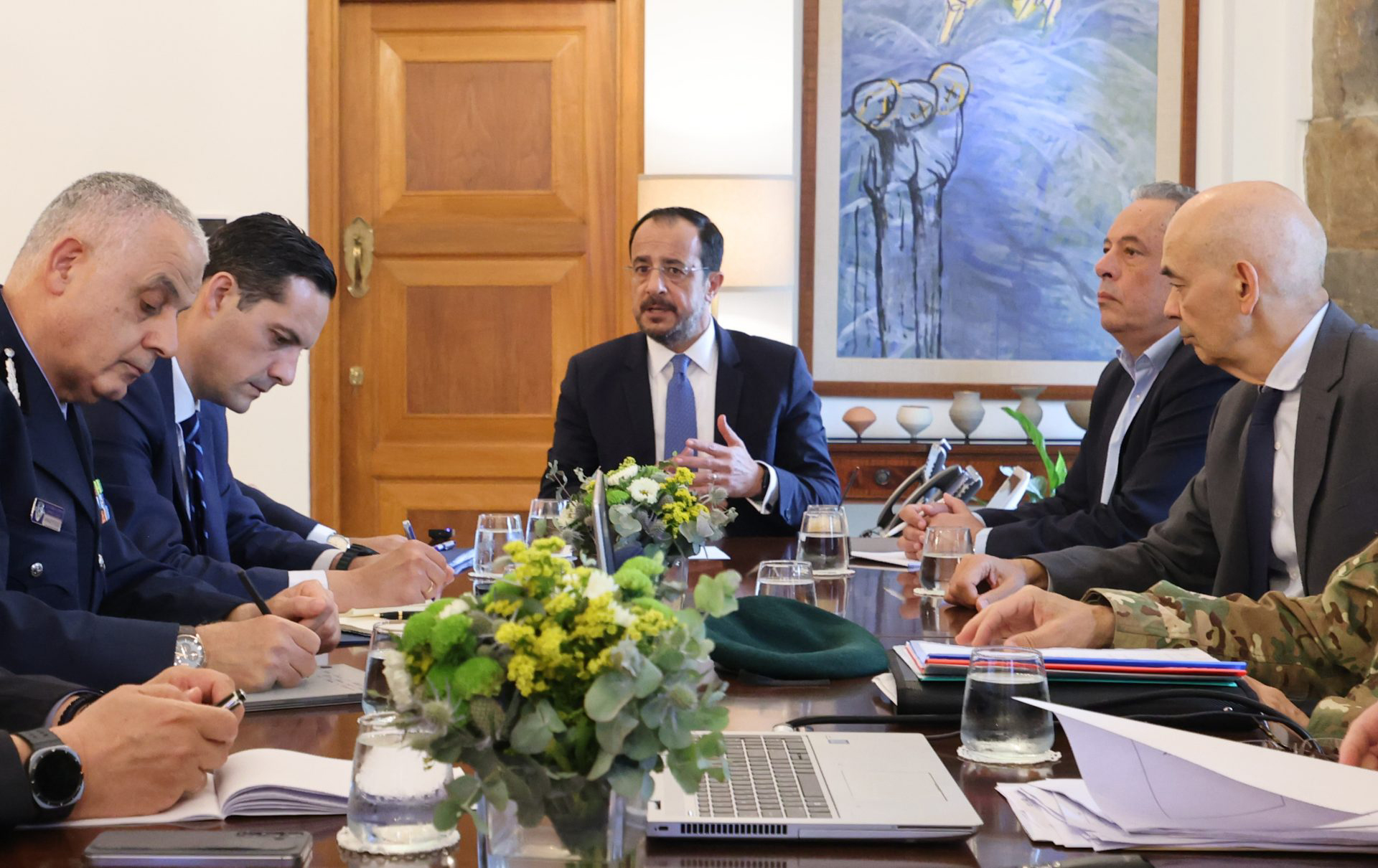Cyprus’ role in the escalating conflict between Israel and Iran is “purely humanitarian”, President Nikos Christodoulides said on Saturday.
Speaking to journalists outside Dipa’s party conference, he said the situation is “worrying for the whole world”.
“The National Security Council is in constant consultation, while the foreign minister [Constantinos Kombos] has had the most telephone communications with foreign ministers from other states of any country,” he said.
He added that the Cypriot government is “also in contact with the European Union” over the situation, and that Brussels is “asking us for an assessment of the state of affairs”.
“Yesterday, we also spoke with Israel, we also spoke with Iran, and through [Kombos] we sent some specific messages, sending the message that this situation cannot lead to the resolution of any differences,” he said.
He added that his government is continuing its “efforts and consultations” with states in the Middle East, with the United States, and with the EU, while also “taking all these actions internally … so that there is no danger in our country”.
He also passed comment on the matter of the British bases in Cyprus and said that the United Kingdom had informed the National Security Council that the bases “have not been used” as part of the conflict this week, while also stressing that his government has no involvement in the bases’ running or the wider conflict.
“The Republic of Cyprus, I repeat, is not involved in any way in this conflict. Our role is purely humanitarian, and we are ready, we have activated the ‘Estia plan’, in case the need arises to play our role, which is purely humanitarian,” he said.
Under the ‘Estia plan’, Cyprus acts as a hub for EU and third country nationals to be evacuated from conflict zones to the island before travelling onwards to their countries of origin.
Asked whether there have been any requests filed to the Cypriot government under the ‘Estia plan’ thus far, he replied in the negative, but stressed that “a relevant assessment has been made by a number of countries as to whether we are willing and ready in the event of an escalation, in the event of there being a need, and of course our answer was positive”.
He then said he had held a telephone conversation with Greek Prime Minister Kyriakos Mitsotakis, and that through Kombos’ various contacts during Friday, “we sent specific messages, and we continue to do so in the direction of the two countries, Israel and Iran, so that this difficult situation is brought to an end and does not escalate further”.
Then asked whether the government will take “additional security measures” or whether Cyprus has already reached its maximum level of security measures, he said, “no, there are additional measures, which can be taken depending on developments”.
Kombos had on Friday spoken to no fewer than 11 of his counterparts from the region and the wider world, including Iran’s Foreign Minister Seyyed Abbas Araghchi and Israel’s Foreign Minister Gideon Saar, as well as officials from Lebanon, Jordan, Iraq, Bahrain, Oman, Egypt, Palestine, the UK and the EU.






Click here to change your cookie preferences